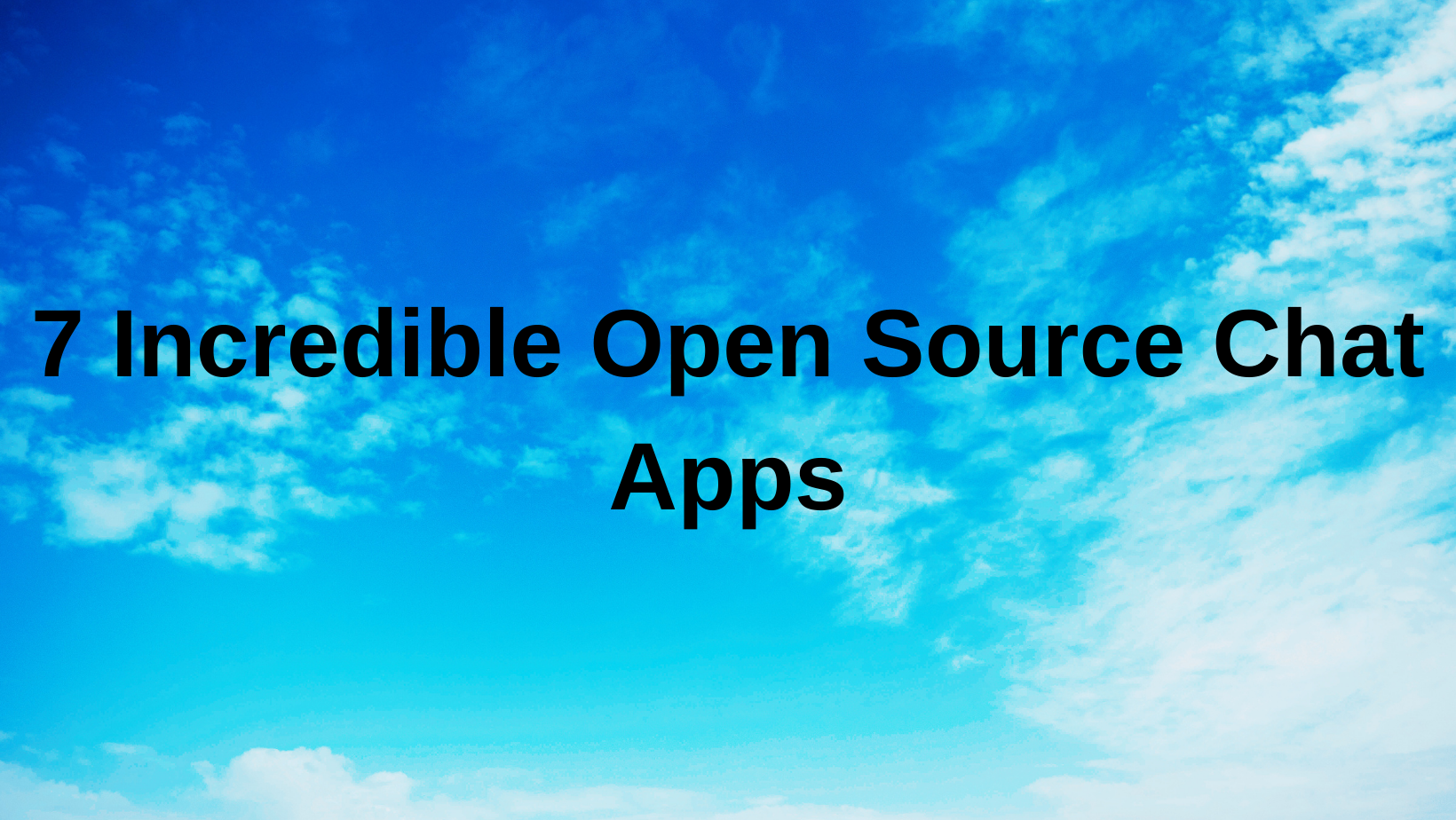7 Incredible Open Source Chat Apps
 Serdarcan Büyükdereli
Serdarcan Büyükdereli
As you know, there are many messaging applications offered as cloud services today. These include apps like Slack, Discord, and Teams, and we could extend this list even further.
In this article, I will show you 7 amazing self-hosted chat apps that you can set up yourself.
1) Lobe-Chat
LobeChat is a modern, open-source AI chat framework. Users can deploy the community edition on their own servers for free. Additionally, the LobeChat Cloud version provides all registered users with 450,000 free computation credits. For users with higher usage requirements, paid subscription plans are available.
Features:
- Compatible with various AI providers (OpenAI, Claude 3, Gemini).
- Supports creating and managing knowledge bases.
- Offers multi-modal text and voice interactions.
Pros:
- Developer-friendly and highly customizable.
- Modern and user-friendly interface.
Cons:
- Limited community support due to being a relatively new platform.
- Stability issues may arise from frequent updates.
2) Rocket Chat
Rocket.Chat is an open-source and customizable communication platform. The free Starter plan allows teams of up to 50 users to collaborate securely and provides support for 100 active customers per month. This plan includes premium features such as unlimited app integrations, unlimited push notifications, read receipts, federated channels, and multi-user direct messaging. Additionally, it offers advanced LDAP, SAML, and OAuth capabilities, as well as an air-gapped deployment option for enhanced security.
Features:
Secure messaging and file sharing capabilities.
Video conferencing support.
Extensive integration options.
Pros:
Strong data security and versatile integration support.
Highly customizable with self-hosting options.
Cons:
Setup process can be complex for beginners.
High resource consumption.
3) Mattermost
Mattermost is an open-source and secure team communication platform. It integrates messaging, file sharing, and project management tools to help teams work more efficiently. The free version offers unlimited message history, basic collaboration tools, and file sharing capabilities. Additionally, it provides full control with self-hosting options.
Features:
Integration of messaging and project management.
Strong API support for developers.
Pros:
Secure and highly customizable.
Extensive integration support for developer tools.
Cons:
User interface may feel complex.
Setup process can be time-consuming.
4) Zulip
Zulip is a team collaboration tool that combines topic-based discussions with real-time messaging.
Zulip is an open-source team communication platform that combines topic-based messaging with real-time chat. Zulip's free plan, which you can host on your own server, includes all the essential team chat features and offers unlimited mobile notifications for up to 10 users. For larger organizations, there are paid plans that provide unlimited mobile notifications and additional support options while taking advantage of all the benefits of open-source software.
Features:
Efficient communication with threaded conversations.
Active community support.
Pros:
Clear message organization.
Active community support.
Cons:
Outdated user interface design.
Limited integration support compared to competitors.
5) Chatwoot
Chatwoot is an open-source solution for managing customer support interactions across multiple channels.
Community Edition: This free version includes basic features and offers community support. However, it does not include advanced features like custom branding, SAML SSO, or role and permission management.
Open-source omni-channel support platform, an alternative to Intercom and Zendesk
Features:
- Multi-channel customer support.
- User-friendly interface.
Pros:
Easy-to-use and customizable.
Omni-channel support features.
Cons:
Lacks some advanced features found in commercial tools.
Scalability limitations may exist.
6) Twake
Twake is an open-source collaboration platform offering messaging, file storage, and collaborative document editing. Twake combines all the essential features for collaboration, such as team chat, file storage, team calendar, and task manager, into a single platform.
Features:
- Integrated productivity tools.
- Modern interface and customizable architecture.
Pros:
Open-source and highly customizable.
Advanced team collaboration features.
Cons:
Development activity may have decreased.
Some features are incomplete or underdeveloped.
7) Revoltchat
Revolt is a customizable open-source chat platform that can be self-hosted using Docker.
Features:
Privacy-focused.
Lightweight with self-hosting capabilities.
Pros:
Highly customizable.
Lightweight and efficient.
Cons:
Limited community support.
Smaller user base compared to other platforms.
Don’t miss out on exciting updates and insights—stay connected for more innovative features, announcements, and opportunities to explore!
Subscribe to my newsletter
Read articles from Serdarcan Büyükdereli directly inside your inbox. Subscribe to the newsletter, and don't miss out.
Written by

Serdarcan Büyükdereli
Serdarcan Büyükdereli
Senior DevOps Engineer | Building scalable, reliable infrastructures | Automation, Cloud, CI/CD | Performance & security-focused 🚀